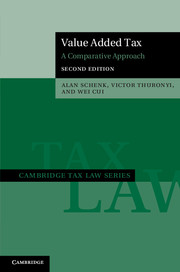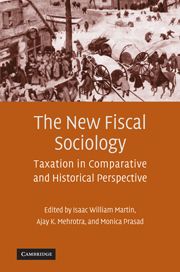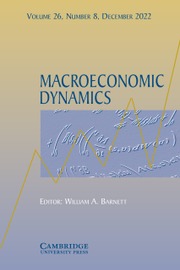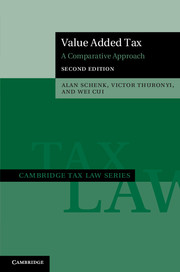The Administrative Foundations of the Chinese Fiscal State
$35.99 (F)
Part of Cambridge Tax Law Series
- Author: Wei Cui, University of British Columbia, Vancouver
- Date Published: July 2023
- availability: Available
- format: Paperback
- isbn: 9781108812153
$
35.99
(F)
Paperback
Other available formats:
Hardback, eBook
Looking for an examination copy?
This title is not currently available for examination. However, if you are interested in the title for your course we can consider offering an examination copy. To register your interest please contact [email protected] providing details of the course you are teaching.
-
On subjects ranging from trade to democratization, there has lately been a wave of laments about China's development belying Western expectations. Yet these disappointments often come with misunderstandings of the very institutions that China was expected to adopt. Chinese taxation offers a sharp illustration. When China introduced a tax system suited for the market economy, it fully intended tax collection to rely on self-assessment, audits, and the rule of law. But this Western approach was quickly jettisoned in favour of one that emphasized monitoring of taxpayers and ex ante interventions, at the expense of deterrence and truthful reporting norms. The Chinese approach surprisingly matches recommendations made by recent economic scholarship on tax compliance and state capacity. China's massive but little-known explorations in taxation highlight the distinct types of modern state capacity, and raise challenging questions about the future of taxation and the superiority of institutions based on rule of law.
Read more- Offers a novel, systematic, in-depth, yet concise analysis of the foundational institutions in Chinese taxation
- Makes an important contribution to the study of tax and development by clearly explaining fundamental differences between tax administration paradigms, and highlighting their political determinants
- Analyzes Chinese taxation and presents a critical perspective on Chinese law
Reviews & endorsements
‘One of the foremost international tax scholars in the world, Cui Wei presents a fascinating yet largely unknown recent development in international fiscal policy: the extraordinary decision by China to implement its income tax system without relying on principles - the rule of law, and self-assessment by taxpayers - that are foundational elements of sound tax administration in most developed countries. Cui’s highly readable, carefully researched, and balanced account is must-reading for those interested in understanding China’s likely future place on the world stage.’ George K. Yin, Distinguished Professor of Law and Taxation Emeritus, University of Virginia
See more reviews‘This book provides a fresh and informative account about how the Chinese tax system really works. Even those not specifically interested in China or taxation can learn much from this examination of the development of China's policy in this area. Wei Cui’s book offers not only a novel approach to studying tax administration but also many useful lessons for anyone concerned with implementing public policy in any country. In policy analysis, the devil is usually found in the details: this is a rare study that not only delves into the relevant details but also carefully places them within the relevant context and shows how context shapes both policy and outcomes,’ Richard M. Bird, Professor Emeritus of Economic Analysis and Policy, Rotman School of Management, University of Toronto
‘Cui presents an engrossing story of the operation of the Chinese tax and fiscal systems. The rich empirical data, the refreshing perspective from which the subject matter is examined, and its novel arguments make a valuable contribution to the field. Readers familiar with taxation or Chinese legal systems will appreciate the author’s mastery of his materials as well as his ability to identify key features from an array of discrete and complex information sources and to interpret those features in familiar terminologies to readers outside China.’ Yan Xu, The China Quarterly
‘In his [remarkable] book…Cui composes a detailed picture of an organized modern tax system that does not depend on rule of law. Yet the Chinese fiscal system is neither a dissolute mess nor a top-down exercise of discretionary power…This is more than a story about tax farming or crony Communism … Cui’s observations are valuable and thought-provoking for the study of any jurisdiction’s tax system.’ Susan C. Morse, Florida Tax Review
‘Cui’s monograph is a must-read: it is carefully crafted, beautifully written, and absolutely fascinating.’ Kim Brooks, Canadian Tax Journal
Customer reviews
Not yet reviewed
Be the first to review
Review was not posted due to profanity
×Product details
- Date Published: July 2023
- format: Paperback
- isbn: 9781108812153
- length: 302 pages
- dimensions: 229 x 152 x 16 mm
- weight: 0.442kg
- availability: Available
Table of Contents
List of figures and tables
Acknowledgements
List of abbreviations
Introduction
1. The forgotten reform
2. What is an audit?
3. Atomistic coercion
4. Returning responsibilities to taxpayers
5. Organizing revenue
6. Policymaking without information
7. The rhetoric of law
8. Varieties of state capacity
9. Pivoting away from the rule of law
References
Index.
Sorry, this resource is locked
Please register or sign in to request access. If you are having problems accessing these resources please email [email protected]
Register Sign in» Proceed
You are now leaving the Cambridge University Press website. Your eBook purchase and download will be completed by our partner www.ebooks.com. Please see the permission section of the www.ebooks.com catalogue page for details of the print & copy limits on our eBooks.
Continue ×Are you sure you want to delete your account?
This cannot be undone.
Thank you for your feedback which will help us improve our service.
If you requested a response, we will make sure to get back to you shortly.
×




